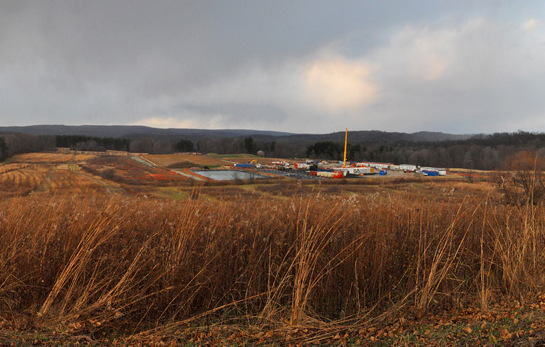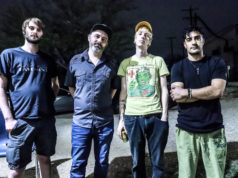Invisible gas isn’t the easiest thing to photograph.
Yet the photographers of the Marcellus Shale Documentary Project have managed to capture the human and environmental toll of fracking on a heretofore unseen scale. The photo essay, which opens today at the Pittsburgh Center for the Arts, is a monumental achievement of journalism that will hopefully receive much attention in the months to come.
The traveling exhibit is the collected work of six photographers: Noah Addis, Nina Berman, Brian Cohen, Scott Goldsmith, Lynn Johnson and Martha Rial. Their project will be published in a 220-page book, and the exhibition will showcase 50 images selected by Laura Domencic, director of Pittsburgh Center for the Arts.
No word on if or when the exhibit is coming to Texas, but it would be surprising if it didn’t come to the Barnett Shale, where fracking was born.
“Our intention is to inject some thoughtful observations to help facilitate a community dialogue,” says Ms. Domencic. “Arguments can be made on both sides of this debate and this project is not about taking one of them. Our only agenda is to open up a conversation. This happens when we observe, ask questions, listen and seek to understand.”
The New York Times’ photography blog summed up best the power and significance of the project:
Together, the six photographers have been able to do what no one of them could do alone: crisscross the state, photograph dozens of drill rigs that have popped up along highways and in backyards, and talk to farmers, homeowners, drillers, environmental advocates and lawyers, all of whom have a profound stake in the invisible substance buried more than a mile below ground. Ultimately, their aim is to create a visual record of the “great shale rush,” and chronicle the changes that Americans can expect to see as we drill our way into the future.
The blog also has a slideshow of the photos. Check them out.












